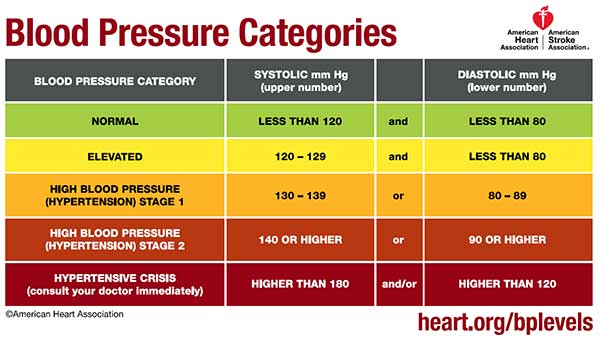Physical Address
304 North Cardinal St.
Dorchester Center, MA 02124
Physical Address
304 North Cardinal St.
Dorchester Center, MA 02124

Contents
Blood pressure is the force of blood pushing against your artery walls. High Blood Pressure (HBP), also known as hypertension, means the pressure in your arteries is higher than it should be. Hypertension can develop over many years without showing any signs or symptoms; however, throughout this time, damage is being done to your overall health. Thus giving this condition the nickname “silent killer.” Hypertension can be identified as primary (without a known cause) or secondary (having an underlying condition as its cause).
One of the top symptoms of high blood pressure is a severe headache. This headache may be persistent and not relieved by usual pain medications. It can be throbbing or pulsating in nature, often affecting the back of the head.
High blood pressure can lead to increased pressure within the blood vessels in the brain, causing these severe headaches. If you experience such headaches frequently, it is essential to get your blood pressure checked.
Nosebleeds can be a common symptom of high blood pressure. The increased pressure within the blood vessels can cause tiny blood vessels in the nose to rupture, leading to nosebleeds. While nosebleeds can have various causes, they should not be ignored, especially if they occur frequently.
If you notice frequent nosebleeds, particularly without any apparent cause such as trauma, it is advisable to have your blood pressure evaluated.
Shortness of breath or breathlessness can be a symptom of high blood pressure. When blood pressure is elevated, the heart has to work harder to pump blood through the body. This increased workload can lead to shortness of breath, especially during physical exertion or even at rest in severe cases.
If you find yourself becoming breathless with minimal activity or at rest, it is crucial to have your blood pressure checked to rule out hypertension as a possible cause.
Tinnitus, characterized by a ringing, buzzing, or hissing sound in the ears, can be associated with high blood pressure. The increased pressure in the blood vessels can affect the blood flow to the ears, leading to these auditory symptoms.
If you experience persistent tinnitus, especially in conjunction with other symptoms like headaches or dizziness, it is advisable to consult a healthcare provider for a comprehensive evaluation, including blood pressure measurement.
Changes in sleep patterns, such as excessive sleepiness or insomnia, can sometimes be linked to high blood pressure. The alterations in blood pressure regulation can impact the quality and quantity of sleep, leading to daytime drowsiness or difficulty falling or staying asleep.
If you notice significant changes in your sleep habits, along with other symptoms like fatigue or headaches, it is essential to consider monitoring your blood pressure to assess for hypertension.
Confusion or cognitive difficulties can be a less common but critical symptom of high blood pressure. When blood pressure is elevated, it can affect the blood flow to the brain, leading to cognitive impairments such as confusion, memory problems, or difficulty concentrating.
If you or a loved one experiences unexplained confusion or mental fog, especially in the presence of other symptoms like dizziness or visual changes, seeking medical attention for a comprehensive evaluation, including blood pressure assessment, is crucial.
Chronic fatigue or persistent tiredness can be a symptom of high blood pressure. The increased workload on the heart and blood vessels due to hypertension can lead to feelings of fatigue, even with minimal physical activity.
If you find yourself constantly tired or lacking energy, it is essential to consider underlying causes such as high blood pressure and seek appropriate medical advice for evaluation and management.
Excessive sweating, especially without a clear trigger such as physical exertion or heat, can sometimes be associated with high blood pressure. The changes in blood flow and circulation due to hypertension can lead to abnormal sweating patterns.
If you notice profuse sweating that is unrelated to external factors, along with other symptoms like palpitations or shortness of breath, it is advisable to have your blood pressure assessed to rule out any underlying issues.
Episodes of vomiting, particularly when not related to gastrointestinal issues or food poisoning, can be a rare but severe symptom of high blood pressure. The impact of hypertension on various organs, including the kidneys and brain, can sometimes manifest as nausea and vomiting.
If you experience recurrent episodes of vomiting, especially in conjunction with other symptoms like severe headaches or visual disturbances, seeking prompt medical attention for a comprehensive evaluation, including blood pressure monitoring, is crucial.
Blurred vision or changes in visual acuity can be a concerning symptom of high blood pressure. The effects of hypertension on the blood vessels supplying the eyes can lead to visual disturbances, including blurred or double vision.
If you notice sudden changes in your vision, especially if it is accompanied by other symptoms like headaches or dizziness, it is essential to have your blood pressure checked promptly to assess for any potential complications.